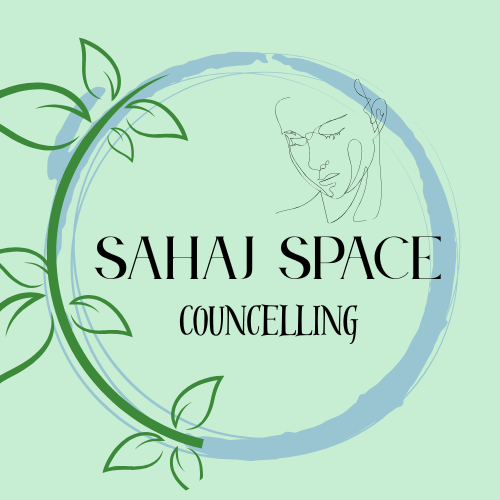In today’s busy, fast-paced world, mental health often takes a back seat to work, responsibilities, and constant digital distractions. But just as we brush our teeth and eat healthy meals for our physical health, we also need daily habits to nurture our emotional well-being. Mental health is not just the absence of illness—it’s the presence of balance, purpose, and peace. The good news is that small, consistent actions can make a big difference in how you feel, think, and cope with life’s challenges. From emotional well-being tips and daily affirmations for mental strength to building a simple mental detox routine and learning how to improve mindset naturally, there are many effective ways to support your mental health each day. In this blog, we’ll explore 10 Daily mindfulness practices for beginners to Boost Your Mental Health. You can start now to feel more centred, focused, and emotionally strong.

Simple Practices You Can Start Today to Build a Healthier, Happier Mind
Improving your mental health doesn’t have to be complicated or time-consuming. In fact, the most effective changes often come from small, intentional actions practised consistently. Whether it’s taking a few minutes each morning for mindful breathing, writing down what you’re grateful for, or going for a short walk, these simple daily practices can help you feel more balanced, focused, and emotionally strong. By starting with just one or two manageable habits, you can gradually build a routine that supports a healthier, happier mind—one day at a time.
1. Start Your Day with Positive Intentions
How you begin your morning sets the tone for the entire day. Rather than jumping straight into emails or social media, take 2–5 minutes each morning to ground yourself. Sit in silence, breathe deeply, and repeat daily affirmations for mental strength, such as:
- “I am calm, confident, and in control.”
- “I trust myself to handle anything that comes my way.”
- “Today, I choose peace over perfection.”

These affirmations work as mental anchors. Over time, they help rewire negative thinking patterns and promote self-belief. This small habit is a powerful way to improve your mindset naturally—before your day even starts.
2. Engage in Brain-Boosting Activities
Just like your body needs exercise, so does your brain. Practising brain health activities daily keeps your mind sharp, focused, and emotionally regulated. Here are a few easy options:
- Solve a crossword or Sudoku puzzle
- Read 5–10 pages of a book or listen to an educational podcast
- Try a brain-training app like Lumosity or Elevate
- Learn a new word or fact each day
- Journal your thoughts to process emotions

Keeping your brain engaged prevents mental stagnation and builds mental resilience over time.
3. Move Your Body Every Day
Regular physical movement is one of the best natural therapies for anxiety, depression, and stress. You don’t need an hour-long workout—just 15–30 minutes of light activity can lift your mood and improve sleep.
Try:
- A brisk walk outdoors
- Stretching or yoga in the morning
- A quick dance session to your favourite music
- Cycling, swimming, or even household chores
Movement acts as a brain health activity by increasing endorphins (your brain’s “feel-good” chemicals) and reducing stress hormones like cortisol.

4. Take a Digital Detox Break
Constant screen time, social media comparisons, and 24/7 news exposure can be overwhelming for your mind. One of the most underrated emotional well-being tips is to take intentional breaks from your devices.
Start with:
- 30 minutes to 1 hour of screen-free time daily
- No-phone mornings or post-dinner digital detox
- Replacing phone scrolling with reading, walking, or hobbies

Digital detoxing helps quiet mental noise and gives your brain a chance to reset.
5. Nourish Your Brain with Healthy Foods
What you eat directly affects how you feel—mentally and emotionally. The brain needs specific nutrients to produce neurotransmitters that regulate mood.
Include in your daily meals:
- Omega-3 fatty acids (found in walnuts, flaxseeds, fatty fish)
- Leafy greens (like spinach and kale)
- Berries (rich in antioxidants)
- Fermented foods (like yoghurt or kimchi) for gut health
- Plenty of water for hydration

Eating mindfully and choosing nutritious foods supports both mental clarity and long-term brain health.
6. Keep a Gratitude Journal
Gratitude is a simple but transformative habit. Writing down three things you’re thankful for each day shifts your focus from problems to possibilities.
You can write things like:
- “I’m grateful for my supportive friend.”
- “I’m thankful for the morning sunlight.”
- “I appreciate having a peaceful moment today.”

Over time, gratitude journaling trains your brain to recognise the good in your life, fostering emotional strength and joy. It’s one of the easiest yet most effective mental health habits you can build.
7. Talk to Someone You Trust
Humans are wired for connection. Bottling up your emotions can lead to anxiety, emotional exhaustion, and even physical symptoms. Whether it’s a quick chat with a friend or a deep conversation with a counsellor, expressing your feelings helps lighten your mental load.
Daily check-ins with someone—whether through a message or call—can help you feel supported. And if you’re facing ongoing emotional challenges, don’t hesitate to reach out for professional counselling. Talking is healing.
8. Practice Mindful Breathing
Mindfulness is not complicated. Even five minutes of intentional breathing each day can bring calm, focus, and relief.
Try the 4-4-4-4 method (box breathing):
- Inhale for 4 seconds
- Hold for 4 seconds
- Exhale for 4 seconds
- Hold for 4 seconds
- Repeat for 5–10 rounds
This slows your heart rate, soothes your nervous system, and brings your attention back to the present moment. It’s an essential tool in any mental detox route.
9. Prioritise Deep, Restful Sleep
Sleep is when your brain repairs itself, processes memories, and balances mood-regulating hormones. Poor sleep is linked to anxiety, irritability, and difficulty coping with stress.

Create a sleep-supportive routine:
- Stick to consistent bed and wake times
- Avoid screens 1 hour before bed
- Use calming sounds, scents (like lavender), or white noise
- Keep your room cool, dark, and tech-free
7–9 hours of sleep can make a dramatic difference in your emotional balance and daily energy.
10. Be Kind to Yourself Every Day
Self-compassion means treating yourself with the same kindness you’d offer a loved one. Too often, we criticise ourselves for not being “perfect” or “productive enough.” But true strength lies in acceptance and care.

Practice this by:
- Speaking gently to yourself when you make mistakes
- Celebrating small wins
- Permitting yourself to rest without guilt
- Replacing “I should have” with “I’m learning to…”
Being kind to yourself builds emotional resilience and helps you recover faster from stress and setbacks.
Improving your mental health doesn’t require expensive tools or drastic changes. It starts with small, consistent actions—daily habits that support balance, clarity, and peace. It also builds your self-esteem, and if you want to know more about it, just click the link https://sahajspacecouncelling.com/ways-to-build-self-esteem/. By incorporating some of the habits above into your routine, you can begin to feel more centred, focused, and in control.
Whether you choose to start with positive affirmations, mindful breathing, or nourishing your brain, remember that every small step counts. Your mind, just like your body, deserves daily care.
Need Support on Your Mental Health Journey?
At SahajSpaceCounselling, we help individuals strengthen their mental wellness through personalised counselling, therapy, and guided habit-building. If you’re looking for guidance or feel stuck emotionally, our experienced counsellors are here to help.
– Book a free 15-minute consultation today
-Or explore our blog for more emotional well-being tips and mental health resources
